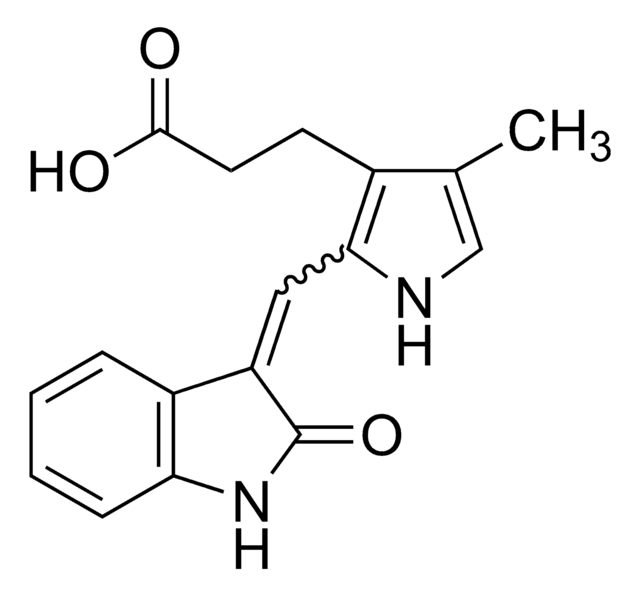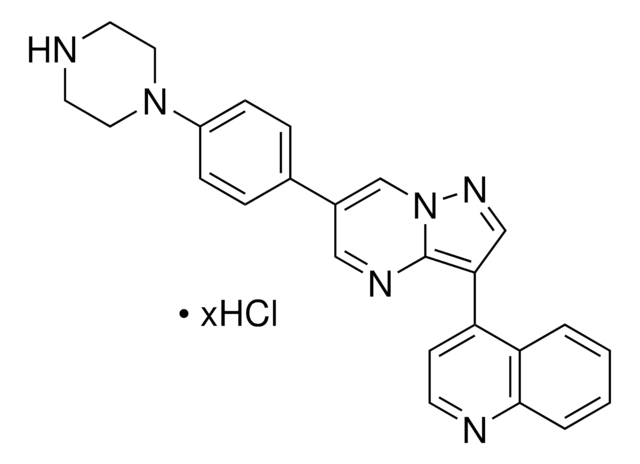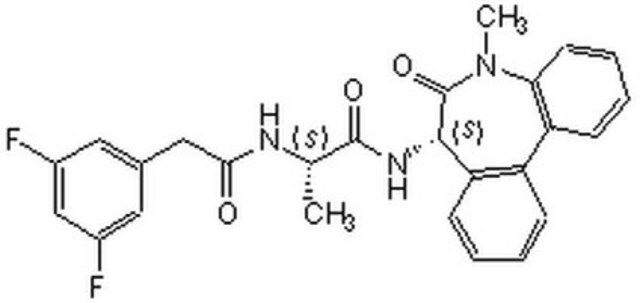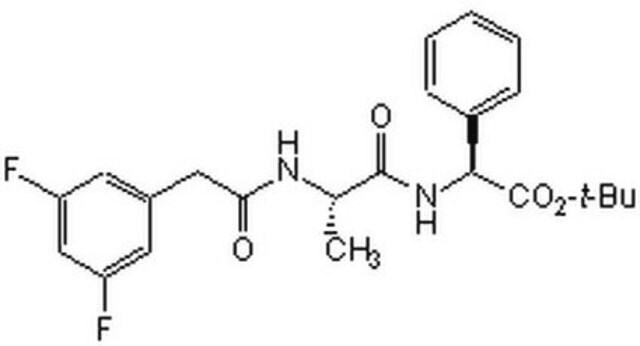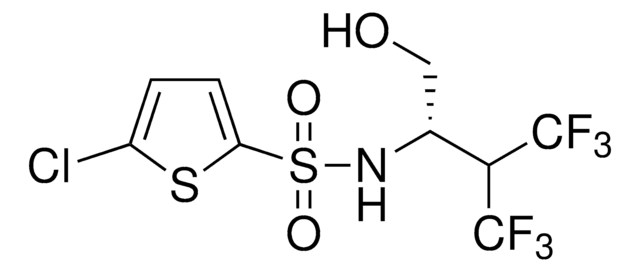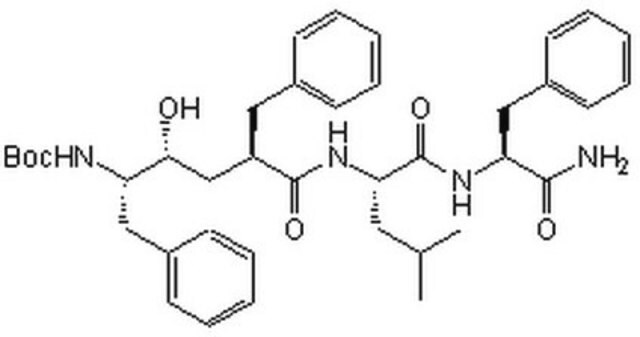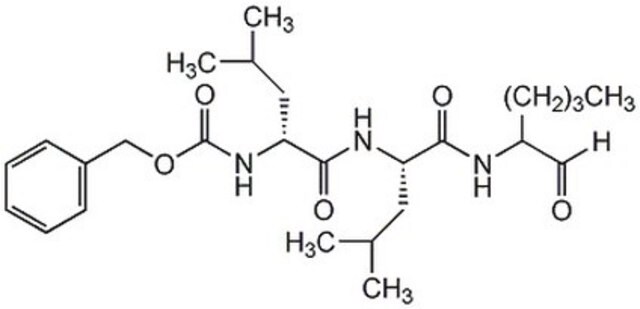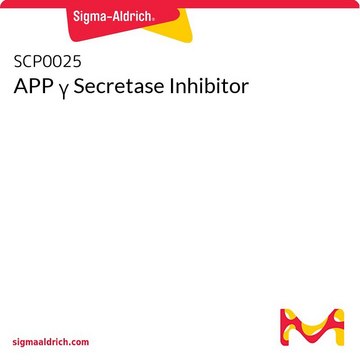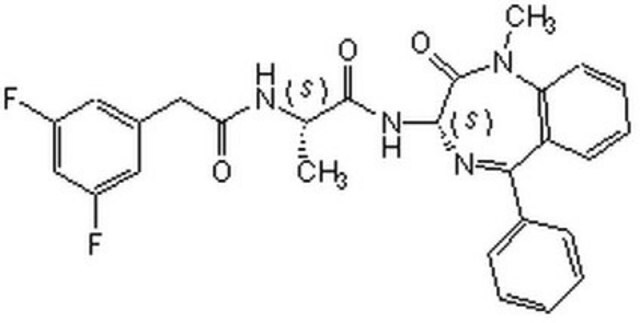D5942
DAPT
≥98% (HPLC), solid, γ-secretase inhibitor
Synonym(s):
GSI-IX, LY-374973, N-[N-(3,5-Difluorophenacetyl)-L-alanyl]-S-phenylglycine t-butyl ester
About This Item
Recommended Products
Product Name
DAPT, ≥98% (HPLC), solid
biological source
synthetic (organic)
Quality Level
Assay
≥98% (HPLC)
form
solid
color
white
solubility
DMSO: ~18 mg/mL
originator
Eli Lilly
storage temp.
2-8°C
SMILES string
C[C@H](NC(=O)Cc1cc(F)cc(F)c1)C(=O)N[C@@H](C(=O)OC(C)(C)C)c2ccccc2
InChI
1S/C23H26F2N2O4/c1-14(26-19(28)12-15-10-17(24)13-18(25)11-15)21(29)27-20(16-8-6-5-7-9-16)22(30)31-23(2,3)4/h5-11,13-14,20H,12H2,1-4H3,(H,26,28)(H,27,29)/t14-,20+/m0/s1
InChI key
DWJXYEABWRJFSP-VBKZILBWSA-N
Gene Information
human ... APH1A(51107) , APH1B(83464) , NCSTN(23385) , NOTCH1(4851) , NOTCH2(4853) , NOTCH3(4854) , NOTCH4(4855) , PSEN1(5663) , PSEN2(5664) , PSENEN(55851)
mouse ... Aph1a(226548) , Aph1b(208117) , Ncstn(59287) , Notch1(18128) , Notch2(18129) , Notch3(18131) , Notch4(18132) , Psen1(19164) , Psen2(19165) , Psenen(66340)
rat ... Aph1a(365872) , Aph1b(300802) , Ncstn(289231) , Notch1(25496) , Notch2(29492) , Notch3(56761) , Notch4(406162) , Psen1(29192) , Psen2(81751) , Psenen(292788)
Application
Biochem/physiol Actions
Features and Benefits
Storage Class Code
11 - Combustible Solids
WGK
WGK 3
Flash Point(F)
Not applicable
Flash Point(C)
Not applicable
Personal Protective Equipment
Choose from one of the most recent versions:
Already Own This Product?
Find documentation for the products that you have recently purchased in the Document Library.
Customers Also Viewed
Articles
Cancer stem cell media, spheroid plates and cancer stem cell markers to culture and characterize CSC populations.
DISCOVER Bioactive Small Molecules for Neuroscience
Our team of scientists has experience in all areas of research including Life Science, Material Science, Chemical Synthesis, Chromatography, Analytical and many others.
Contact Technical Service
